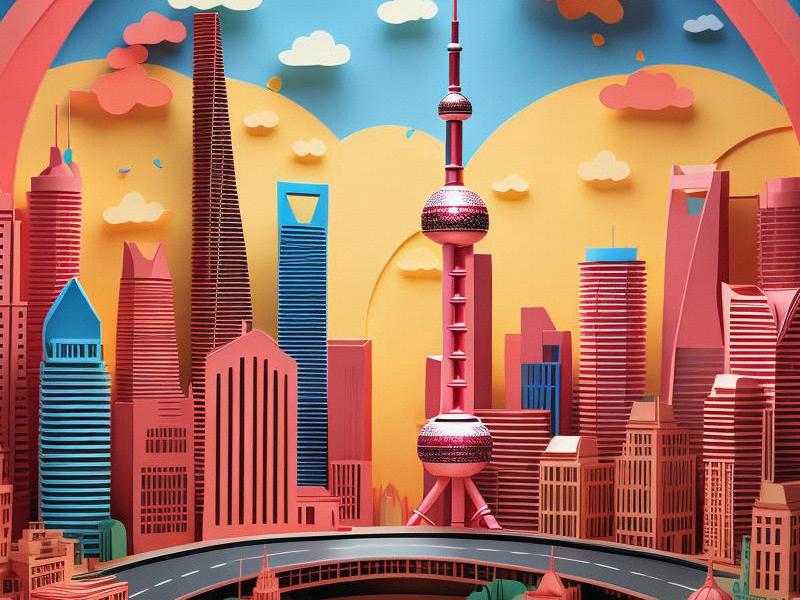
Shanghai, often referred to as the "Pearl of the Orient," stands as a testament to China's rapid modernization and its integration into the global economy. Over the past few decades, Shanghai has undergone a remarkable transformation from a modest port city to a bustling metropolis that is a beacon of economic prowess and cultural vibrancy.
The city's skyline, dominated by iconic structures such as the Oriental Pearl Tower, the Jin Mao Tower, and the Shanghai Tower, is a visual representation of its economic ascendance. These skyscrapers are not just architectural marvels but also symbols of Shanghai's ambition to be a leading global financial center. The Pudong area, once a rural landscape, has been reimagined into a futuristic district housing some of the world's tallest buildings and most advanced financial institutions.
Innovation is at the heart of Shanghai's success story. The city has established itself as a hub for technology and entrepreneurship, attracting both domestic and international talent. Zhangjiang Hi-Tech Park, one of China's premier technology parks, is home to numerous startups, research institutions, and multinational corporations. It is here that some of the most groundbreaking advancements in fields such as artificial intelligence, biotechnology, and information technology are being developed.
Shanghai's commitment to innovation is also evident in its smart city initiatives. The city has embraced digital transformation, leveraging technology to enhance the quality of life for its residents. From intelligent transportation systems that reduce congestion to digital platforms that streamline government services, Shanghai is at the forefront of urban innovation. The launch of the world's first AI-powered municipal government in 2019 further underscores the city's dedication to integrating technology into governance.
爱上海同城对对碰交友论坛 Culturally, Shanghai is a melting pot of traditions and modernity. The city's history dates back thousands of years, but it was during the 19th and early 20th centuries that Shanghai became a cosmopolitan center, known as the "Paris of the East." This period left an indelible mark on the city's architecture, cuisine, and cultural identity.
The Bund, a historic waterfront area, is a showcase of Shanghai's colonial past. Here, visitors can admire the juxtaposition of Art Deco buildings and the modern skyline of Pudong across the Huangpu River. The French Concession, another historic district, retains its charming European-style streetscapes and is now a hub for boutique shops, art galleries, and cafes.
Shanghai's culinary scene is a reflection of its diverse cultural influences. From traditional Shanghainese dishes like xiaolongbao (soup dumplings) and shengjianbao (pan-fried buns) to international cuisines, the city offers a gastronomic adventure for every palate. The vibrant night markets and bustling food streets are a testament to the city's culinary vibrancy and the joy of communal dining.
Art and culture continue to thrive in Shanghai, with the city hosting numerous festivals and exhibitions throughout the year. The Shanghai International Film Festival, one of Asia's most prestigious film events, attracts filmmakers and cinephiles from around the world. The city's museums, such as the Shanghai Museum and the Power Station of Art, showcase a rich collection of art and artifacts that span centuries and continents.
上海水磨外卖工作室 Shanghai's cultural scene is also enriched by its vibrant arts community. The city is home to numerous theaters, concert halls, and performance spaces that host a wide range of cultural events. The emergence of new art districts, such as the West Bund Art & Design and the M50 Creative Park, has provided a platform for contemporary artists to showcase their work and engage with the public.
Urban development in Shanghai is a continuous process, aimed at creating a sustainable and livable city. The city has implemented various initiatives to address environmental challenges and promote green living. The construction of the world's first commercial maglev train, connecting Pudong International Airport to the city center, is a testament to Shanghai's commitment to sustainable transportation.
Shanghai's green spaces, such as Century Park and the Shanghai Botanical Garden, provide residents with opportunities to connect with nature amidst the urban sprawl. The city has also invested in renewable energy projects and waste management systems to reduce its carbon footprint and improve environmental quality.
上海娱乐 The government's Smart City initiatives extend to urban planning, with a focus on creating efficient and livable neighborhoods. Smart grids, intelligent traffic management systems, and digital public services are transforming the way residents live and work. These innovations are not only enhancing the quality of life but also positioning Shanghai as a model for sustainable urban development.
Shanghai's global influence is evident in its role as a major player in international affairs. The city hosts numerous global events, such as the World Expo and the APEC Summit, which bring together leaders, businesses, and experts from around the world. These events provide a platform for dialogue and collaboration on pressing global issues, further cementing Shanghai's status as a global city.
The city's international community is a reflection of its global reach. With a significant expatriate population and a thriving foreign business community, Shanghai is a hub for international trade and investment. The city's free trade zones and business-friendly policies have made it an attractive destination for multinational corporations seeking to expand their operations in China.
In conclusion, Shanghai is a dynamic metropolis that embodies the spirit of innovation, cultural richness, and urban development. Its transformation from a modest port city to a global hub is a story of resilience and ambition. As Shanghai continues to evolve, it remains a city of endless possibilities, captivating the world with its charm and vitality.
